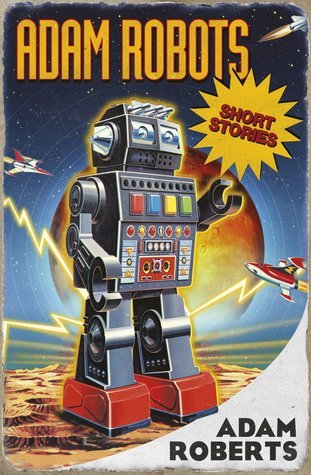What do you think?
Rate this book


400 pages, Kindle Edition
First published January 17, 2013
They're all different (apart from the one which isn't; you can work out which one I mean yourself). Even the ways in which they differ differ.So there's the title story, about a robot named Adam in a Garden where there's just one rule; another about the problem with time travel (which turns out to be a very big problem indeed); a third ("Thrownness") about an involuntary traveller between parallel universes... but also, later on, a fantasy about a woman whose name must be discovered, one ("And tomorrow and") where the Scottish play gets turned on its head, and another half-a-tale that might be just a drugged dream of wonder in a Medieval field of flowers.
 High on concept, (often) low on follow-through.
High on concept, (often) low on follow-through.